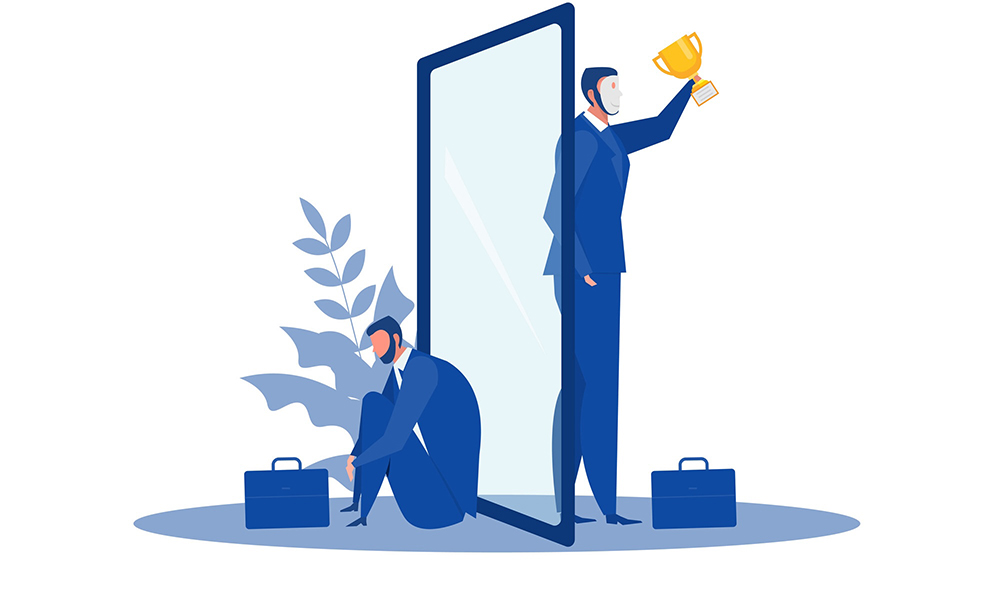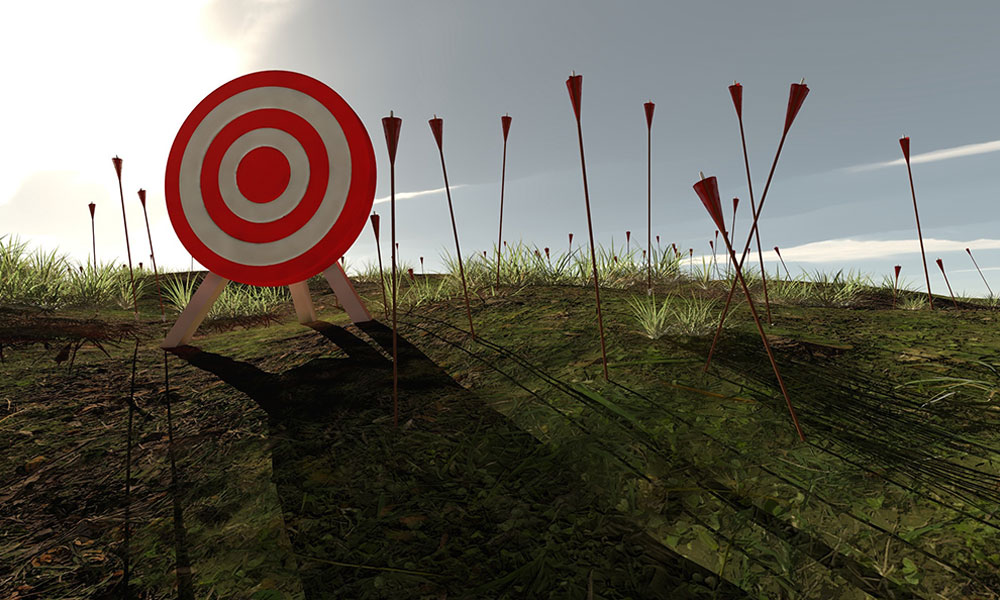“I’ve been meaning to read that, but just haven’t got around to it!”
Does that sound familiar? Chances are it’s your stock response when someone recommends a book. Many of us lament the fact that children today seem to prefer television, video games and social media chatter to books. Yet, our own hectic lives seem to leave us little time or inclination for reading.
So, my message this week is on the edge reading offers you and how to start reading more.
When is the last time you lost yourself in a good book? Something that made you forget time and place, and changed how you thought about things? Something that made you ponder (difficult questions), laugh to yourself, empathise with someone, struggle with new concepts, and actually grow—all of this, while sitting in solitude with a few hundred pages of words?
Books have played an integral part in making many of us the people we are today. I am sure you can think of books that shaped you in your formative years and authors who changed your views about the world—and yourself! Yet, somewhere along the line, we seem to have forgotten the immense value and joy of reading. According to a study done by the Huffington Post, in which 1,000 US adults were polled, 28% hadn’t read a single book in a year!
India fares a little better. In a global survey published by the World Source Index in 2011 about “Readers Round the World”, India ranked the highest in hours read per week—10.42 hours compared to the US’s 5.42 and Korea’s (the lowest in the survey) 3.06. But this is still not much when you consider the many benefits of reading.
The fact is that while literacy rates are increasing, people are reading less. And not only that, people are reading less deeply.
The reading edge
Reading gives you an edge—not just by increasing your knowledge, but by making you a stronger thinker, a better decision-maker, and a more successful person in just about every aspect of your life.
Elon Musk, the famous entrepreneur; Oprah Winfrey, the talk-show host; and Bill Gates, business mogul and philanthropist—all multi-talented and successful in their respective fields—are avid readers. And let’s not forget Warren Buffet, one of the most respected and wealthy investors of all time. Buffett says he spends 80% of his day reading (he reads 500 pages daily), and he attributes his success to this practice: “That’s how knowledge works. It builds up like compound interest.”
Indeed, the benefits of reading are manifold—it can help prevent stress, depression and dementia, as well as increase confidence, empathy, memory, analytical capabilities, innovation, and overall life satisfaction and happiness.
According to a 2009 study conducted by the University of Sussex, where participants’ heart rate and muscle tension were tracked, reading eased tension and helped participants relax and de-stress within just six minutes. Reading is also vital as a preventative measure against brain decline and diseases such as Alzheimer’s. In a study published by the Proceedings of the National Academy of Sciences, those who engaged in mentally stimulating activities such as reading were 2.5 times less likely to develop Alzheimer’s disease.
“The brain is an organ just like every other organ in the body. It ages in regard to how it is used,” says Dr. Robert P. Friedland, lead author of the study. “Just as physical activity strengthens the heart, muscles and bones, intellectual activity strengthens the brain against disease.”
You can read more about the benefits of reading in this insightful article that appeared in The Huffington Post titled “6 Science-Backed Reasons to Go Read a Book Right Now”.
Here are six ways to get you started on your journey to becoming a better, more regular reader:
1. An hour a day keeps stagnation away
You will always be busy. Don’t make that the excuse. Try dedicating one hour each day to yourself, and in that hour…read. We often say we don’t “have time” to read—but the truth is, we need to “make time”.
Shane Parrish, creator of the Farnam Street Blog, a wonderful repository of thoughtful and thought-provoking interviews, says it well:
“It’s important to think about the opportunity cost of this hour. On one hand you can check Twitter, read some online news, and reply to a few emails while pretending to finish the memo that is supposed to be the focus of your attention. On the other hand, you can dedicate the time to improving yourself. In the short term, you’re better off with the dopamine-laced rush of email and Twitter while multitasking. In the long term, the investment in learning something new and improving yourself goes further.”
Of course, how you read matters as much as how much you read. It is not enough to just read and memorise facts; you have to know how to think about these facts, how to link them together, and how to translate them into action in an intelligent way. Basically, you have to be a critical thinker—and to become a critical thinker, nothing works better than reading…a lot.
Books offer an immersive and lasting experience. We tend to invest deeply while reading, slowing down to absorb new knowledge, engage with content, and think about interesting ideas. The more we read, the more connections we make between different pieces of information and sharpen our ability to be discerning and to use our learnings effectively.
2. Read for education
Steve Siebold, author of How Rich People Think, spent the last 30 years interviewing 1,200 of the wealthiest people in the world. He found one common pastime that all of them had in common: “They self-educate by reading,” explains Siebold in his book. “Walk into a wealthy person’s home and one of the first things you’ll see is an extensive library of books they’ve used to educate themselves on how to become more successful. The middle class reads novels, tabloids and entertainment magazines. Rich people would rather be educated than entertained.” And this education has nothing to do with formal education earned through doctorates and degrees—it’s an investment in learning that continues throughout life and is self-motivated.
Of course, this doesn’t mean you need to restrict yourself to just educational reads. Which brings me to my next point—variety.
3. Take a multidisciplinary approach
When reading, it’s important to read a range of books across disciplines—hard sciences, psychology, philosophy, economics, literature, sociology, history, biographies, etc. This not only keeps you open to creative leaps between ideas but also helps you become better at sizing up situations and making good snap decisions.
Charlie Munger, who is considered the best problem-solver and idea-grasper by his partner Warren Buffett, is a huge proponent of cross-disciplinary thinking—a skill that is honed and sharpened by multidisciplinary reading. Munger believes that to be worldly-wise and develop good judgement, it is essential to have a wide variety of “mental models” in your mind to draw from; if you don’t, you are prone to making disastrous decisions because you will try and fit every problem into only one mould—the one you know. He explains his theory in his biography, Poor Charlie’s Almanack:
“You’ve got to have models in your head. And you’ve got to array your experience both vicarious and direct on this latticework of models. You may have noticed students who just try to remember and pound back what is remembered. Well, they fail in school and in life. You’ve got to hang experience on a latticework of models in your head.
What are the models? Well, the first rule is that you’ve got to have multiple models because if you just have one or two that you’re using, the nature of human psychology is such that you’ll torture reality so that it fits your models, or at least you’ll think it does….
And the models have to come from multiple disciplines because all the wisdom of the world is not to be found in one little academic department.”
4. Go digital for easy access
In his path-breaking 1979 work of science fiction, The Hitchhiker’s Guide to the Galaxy, author Douglas Adams described a handheld electronic device that gave users access to “all knowledge and wisdom” across the galaxy. What was then a mere fantasy is now a reality—for anyone with a smartphone or tablet and an internet connection.
Never before have we had such quick and easy access to the world of information and ideas. While many of us have a soft spot for paper books, the usefulness of a Kindle or tablet is undeniable. It’s light and easy to carry, it can store hundreds of books at the same time, and it makes countless titles instantly available to us. You can also highlight interesting bits, make editable notes, and search for relevant terms if you want to look something up later. (Imagine doing that with a physical book—a painstaking endeavour!) Plus, you don’t have to battle eyestrain on the Kindle, thanks to the fact that it uses e-ink instead of light to illuminate the screen. The environment-friendly nature of the Kindle doesn’t hurt either—no paper wastage!
5. Join a reading group
My wife, Roopi is part of a reading group that meets once a month. Each person takes turns to choose a book that the group reads. The person then hosts an evening where the group gets together to discuss and chat about the book. This is a great way to instil discipline to read. It is also fun to bond, chat and learn from each other’s perspectives. Once in a while, they also try to invite the author of the book that they are discussing to join them – which is an added bonus.
So, find a reading group that you can join. Or perhaps start one!
Sumek Gopal has started “Bookworms of GCPL” on our Facebook@Work – an online forum to share suggestions and perspectives about different books. The group already has 33 members. So, if you can’t find a reading group, do try to give this online group a shot.
6. Apply your reading to work
Think about what kinds of issues or challenges that you are facing at work. Perhaps a particular book may help you? Look for stories or analogies from what you are reading and use them to better communicate your priorities. Encourage your team members to share what are they are reading, discuss it in meetings and relate it to how the team can do better.
Renowned ancient philosopher, Confucius said it very well: “No matter how busy you may think you are, you must find time for reading, or surrender yourself to self-chosen ignorance.”
I look forward to hearing about your trysts with reading, the books and authors that have made an impact on you and your thoughts on how we can all start reading much more.








Awesome read. Your articles are a real energy booster for me!
Another great read about reading! I suspect reading digitally has taken over the habit of reading a book. We do end up reading a lot of content in blogs, newsletters etc however the joy of completing a book. Thanks, Vivek, for the gentle reminder…
True. You get a sense of achievement after reading a good book. You do not feel so after mindless surfing.
sir, truly an insightful read..